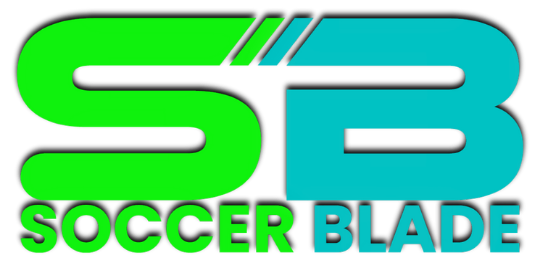Share the post "Playing Soccer Without Glasses (Bad Eyesight)"
You may have noticed that soccer players don’t wear regular glasses when they’re playing. But can all soccer players have good eyesight? The answer is no.
Soccer players are like the rest of us. Some have good eyesight, and some don’t.
Some key points we’ll cover are:
- Reasons you can’t wear glasses
- Options for playing soccer with vision problems
Soccer players with bad eyesight must play soccer without regular glasses, but we’ve got you covered with alternative choices.
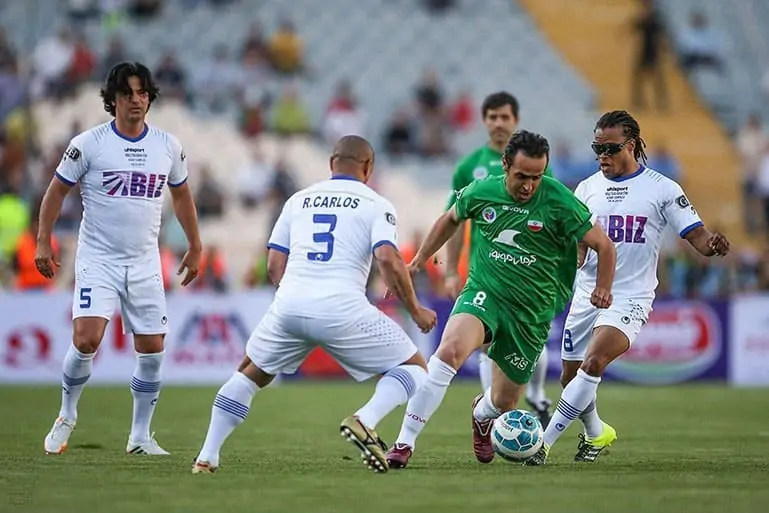
Why you can’t wear glasses playing soccer
You can’t wear glasses while playing soccer for safety reasons. Regular glasses are quite weak and flimsy. In a contact sport like soccer, the glasses could easily break if another player accidentally hits them.
Knocking the frames into your face wouldn’t take too much force. This could cause damage or cuts to your skin. Also, a soccer ball can travel quickly when it’s kicked hard. Imagine if the ball hit your glasses at full speed.
It could easily break the frames or shatter the lenses.
When the frames of glasses break, they can become sharp. You don’t want the sharp edges cutting into the skin of your face. That could cause a lot of damage.
And your eyes are even softer than your skin. That means they’re even more vulnerable to sharp edges of broken frames.
But that’s not all. If small fragments of the shattered lenses got into your eyes, they could cause serious pain and injury.
And there’s even the chance they could cause permanent blindness. That’s a big risk while playing soccer with glasses.
Broken glasses are super dangerous for you.
The risk of serious injury is too high for regular glasses to be allowed while playing soccer. That’s why the referee won’t allow you to start the game with glasses at official, federated games.
They will say that you must take them off before starting. Also, wearing glasses is not a good idea if you’re training or playing with friends. Those things might not be as intense as a real game, but there’s still contact.
As a contact sport, soccer already has some dangers that are part of the game. Allowing glasses while playing would add to the risk, compromising player safety.
That’s why you can’t wear glasses playing soccer.
But don’t worry if you have poor eyesight and need glasses. You can still play soccer. Let’s look at ways you can play soccer if you have vision problems.
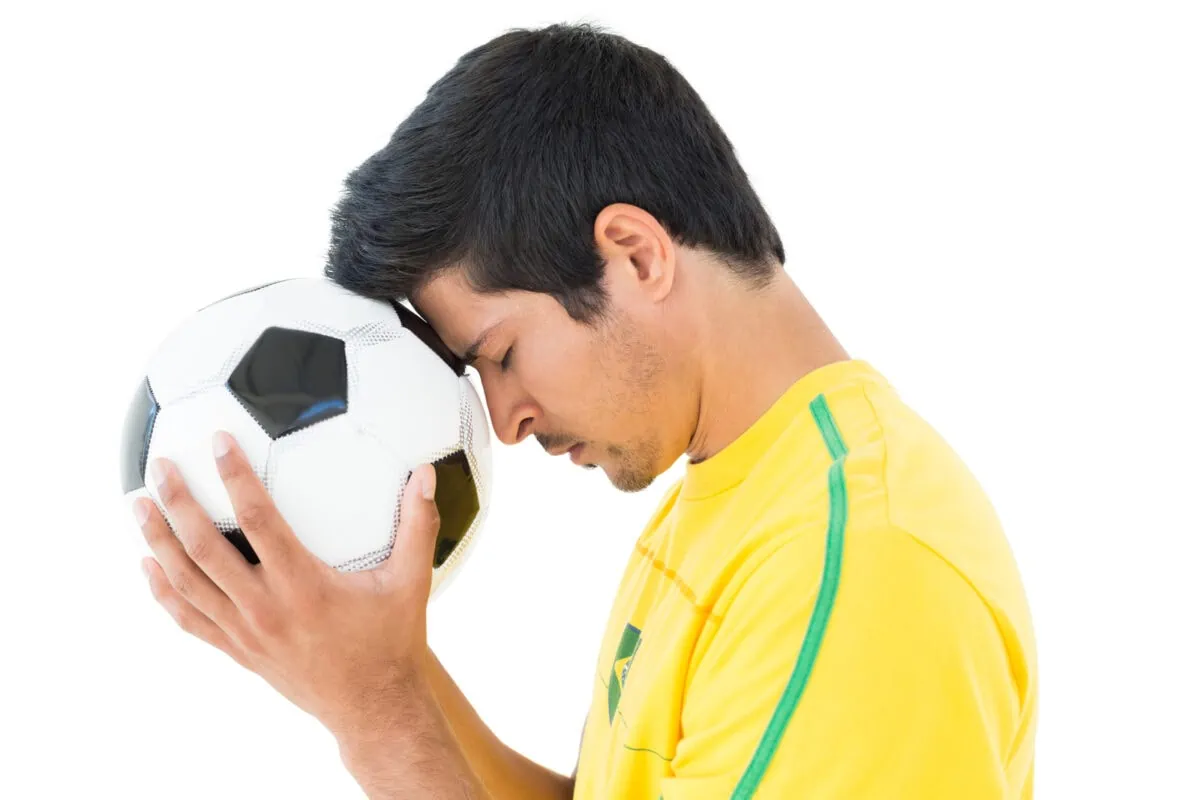
Play soccer with vision problems
To play soccer with vision problems, you have 3 optimal choices:
- Contact lenses
- Sport goggles
- Laser treatment
Let’s go into more detail about these 3 alternatives to regular glasses.
1. Contact lenses
Contact lenses are a great way to solve your vision problems for soccer. They’re made from silicone hydrogel, are small, and their circular shape means they fit snuggly over your eye.
The hydrogel absorbs water from your eyes, which keeps the lenses soft. Because contact lenses are soft, it dramatically lowers the risk of eye injury.
You won’t feel contact lenses when you’re playing soccer. You’ll be able to do everything like normal without worrying about them restricting you.
Wash Your Lenses
However, if dirt or debris gets onto the lenses, it’ll have to be washed off. This can take a little time. And you might need help washing them.
Contact lenses will rarely fall out during activity. That’s why they’re a popular choice with professional soccer players.
If you’re still not sold, think about this.
Cristiano Ronaldo, one of the best players of all time, wears contact lenses while playing soccer.
They don’t slow him down. He’s still scoring plenty of goals even at 36 years old.
Contact lenses are effective and less dangerous than glasses. So, it would be best if you considered them for playing soccer.
But make sure you see a professional get expert advice about contact lenses. Visit your doctor or an optometrist to find the best option for you.
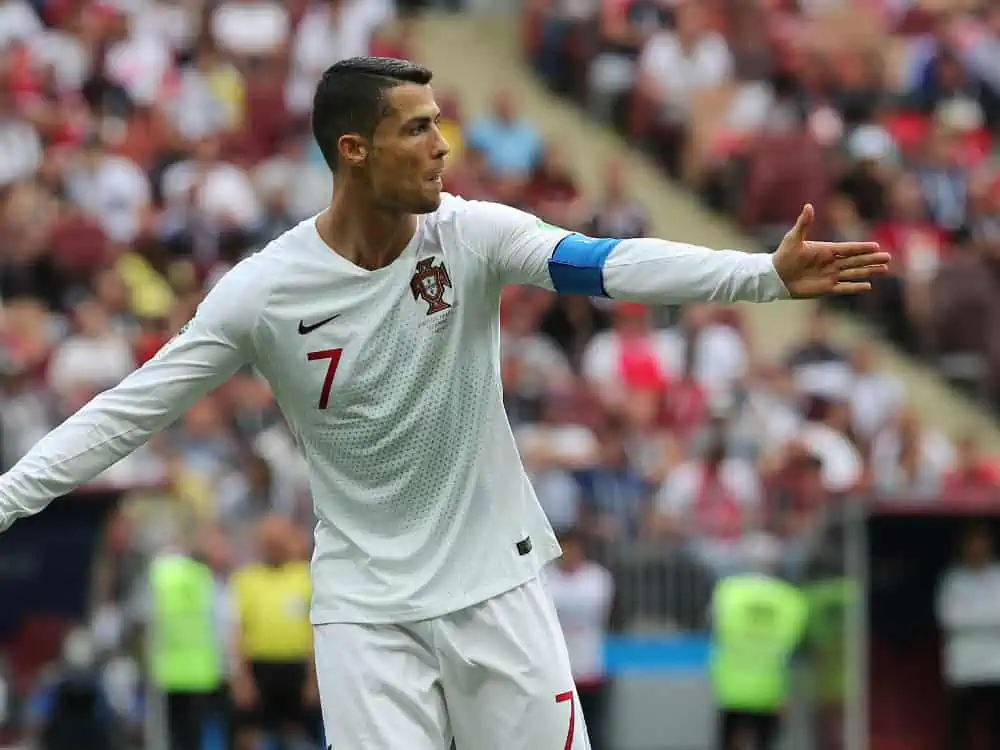
2. Sports goggles
Sports goggles can solve your vision problems and offer protection. They’re very strong and can hold up against the rough and tumble of a soccer game.
In fact, they’re shatterproof, unless put under extreme force.
And they’re lightweight, meaning you won’t really feel them once you start playing. So, these are a good choice if you want more protection for your eyes than contact lenses provide.
If you have an eye condition, these glasses are a good choice. They’ll protect your eyes from getting hurt or damaged.
That’s why Dutch legend Edgar Davids chose to wear sports goggles. Davids suffers from glaucoma. He had surgery in 1999 to treat it.
After the surgery, he wore sports goggles to protect his eyes during games.
He was allowed to wear them playing because they weren’t deemed dangerous.
The sports goggles should have a band that you can secure around your head. That way, they’ll stay tight on your face. You won’t have to adjust them, and they won’t fall off.
Check out Edgar Davids wearing his sport goggles:
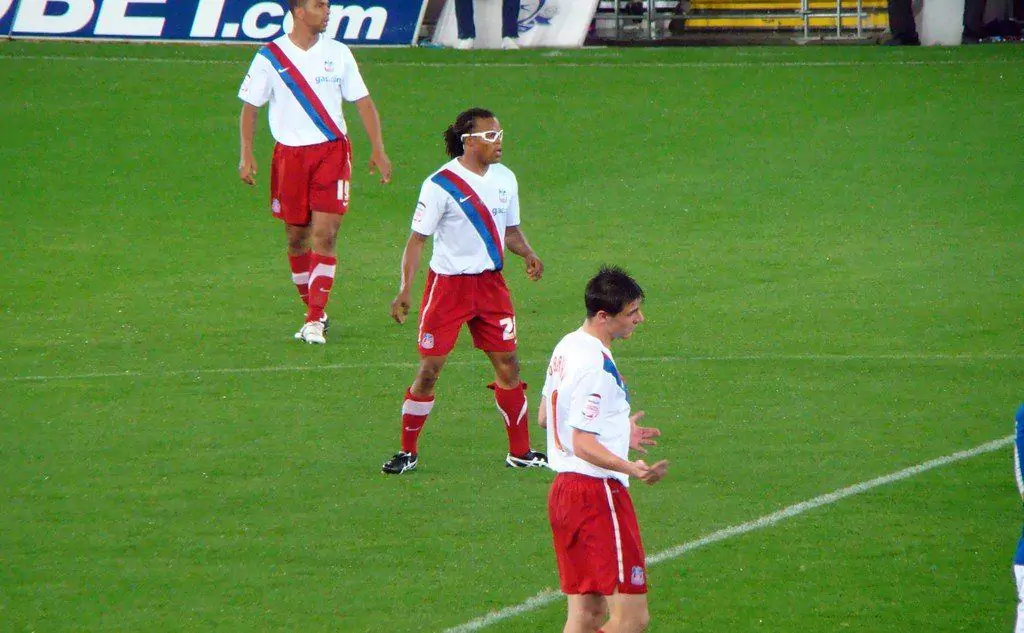
You’ll likely need a prescription for suitable sports goggles. So, consult your doctor or an optometrist for your best options.
3. Laser treatment
Laser treatment can be a good option if you’re playing soccer regularly. You might get annoyed having to put in contacts all the time. Or maybe you don’t like the feeling of sports goggles and don’t need the protection.
Laser treatment should fix your eyesight, so you won’t have to worry about other options while playing soccer. It’ll be like you never had vision problems.
You can play as normal.
This treatment can be quite expensive. So, it won’t be a good option for everyone.
Again, consult your doctor or optometrist before choosing any options. They’ll be able to give you the best advice to meet your needs.
Now you know why you can’t wear regular glasses playing soccer. There are options for you to keep playing if you have vision problems. Our choices are a guide only.
For you, it’s about finding what works best to meet your needs because everyone has a unique situation.
Share the post "Playing Soccer Without Glasses (Bad Eyesight)"
Joel is a seasoned soccer journalist and analyst with many years of experience in the field. Joel specializes in game analysis, player profiles, transfer news, and has a keen eye for the tactical nuances of the game. He played at various levels in the game and coached teams - he is happy to share his insight with you.
